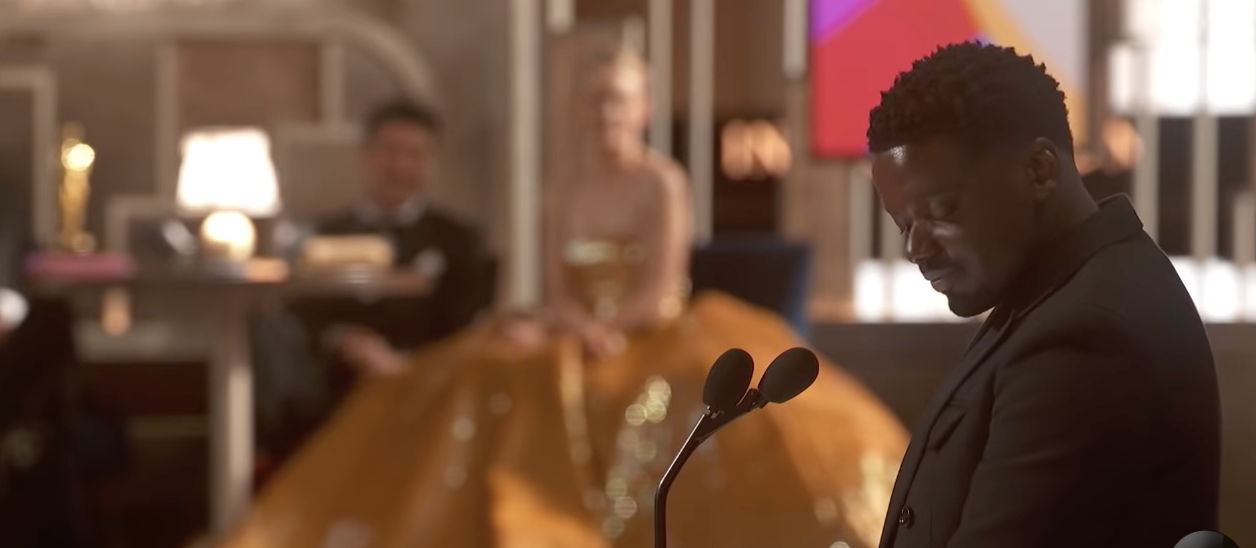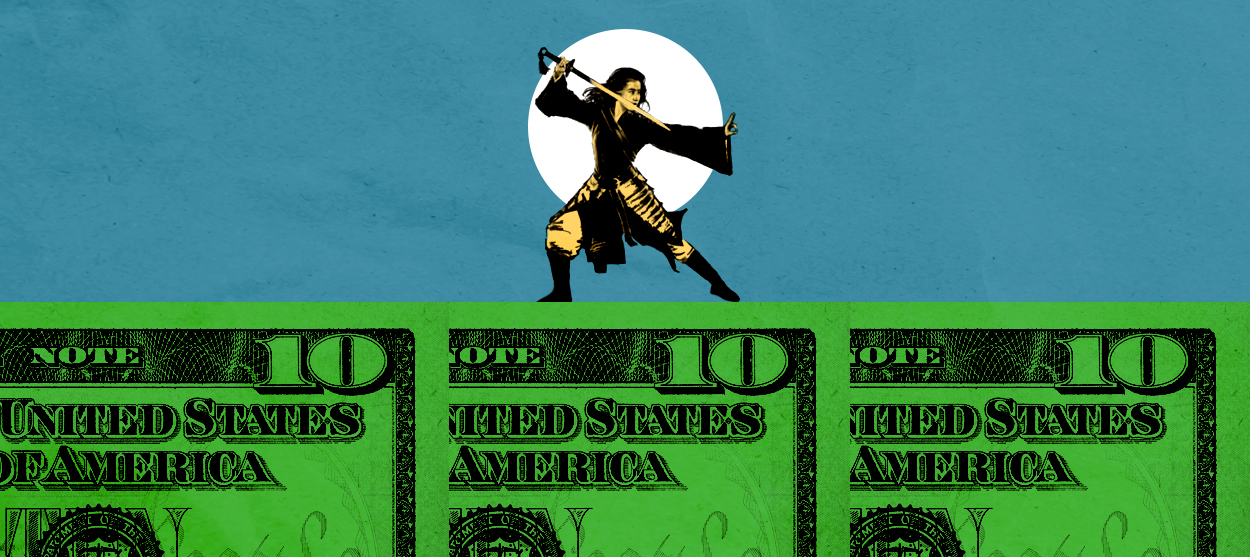The Oscars finale was a heartless disaster
A calculated attempt at emotional manipulation goes very wrong


A free daily email with the biggest news stories of the day – and the best features from TheWeek.com
You are now subscribed
Your newsletter sign-up was successful
If there is one thing an awards show should be, it's unpredictable. That's the reason we watch in the first place: not just to find out who the winners are, but to be stunned by the upsets, to be brought to tears by the speeches, to see the uncensored audience reactions in real time. Even the biggest "bloopers" in Oscars history — like when Frank Capra bounded to the stage in 1933, after Will Rogers announced the best director winner with "come and get it, Frank!" in reference to Frank Lloyd, and the famous La La Land flub in 2017 — are testaments to the candidness of even the most meticulously-plotted ceremonies.
But the debacle that occurred on Sunday night at the 2021 Academy Awards wasn't a mere instance of unrehearsed realism, or the messy charm of live TV. It was, rather, a case of the producers making the fatal mistake of failing to respect that uncertainty is the central tenet of an awards show.
From the get-go, the 2021 ceremony struck out to be visibly different than any ceremony to come before it. The production, led by filmmaker Steven Soderbergh, opened with a flashy, colorful credit sequence. Soderbergh's team also shot the ceremony in a widescreen format and at a rate of 24 frames-per-second — looks that are more characteristic of cinema than TV, where it's more common for an image to fill the whole screen and be shot at a framerate of 30 frames per second. The ceremony described its presenters as "cast members," and treated the Union Station location as a movie set. Compositions were careful and deliberate; dynamic, roving cameras, off-center framing, and a deep use of space set the cinematography apart from the more traditional front-on depiction of speakers typical of the older Dolby Theater ceremonies.
The Week
Escape your echo chamber. Get the facts behind the news, plus analysis from multiple perspectives.

Sign up for The Week's Free Newsletters
From our morning news briefing to a weekly Good News Newsletter, get the best of The Week delivered directly to your inbox.
From our morning news briefing to a weekly Good News Newsletter, get the best of The Week delivered directly to your inbox.


(Academy Awards | ABC)
While the Oscar ceremony had the visual character of a movie, the producers also, apparently, wanted a cinematic climax. Instead of saving the announcement of the Best Picture winner for last — an award that was more or less expected to be a bygone win for Nomadland — the ceremony unexpectedly shuffled the order, so that Best Actress and Best Actor were read last instead.
A charitable defense of this decision is that the producers wanted to emphasize the achievements of individual artists. Since Best Picture awards technically go to producers, having the acting awards close out the night would mean the final statuettes went to people audiences at home could actually identify with and care about. Or perhaps they wanted to save the more exciting 2021 races for the finale: The penultimate award, Best Actress, was expected to be tight, and emotional buzz had been building around the late Chadwick Boseman for Best Actor for months. The more cynical, and more probable, interpretation of this decision is that it was calculated emotional manipulation. Prognosticators overwhelmingly expected Boseman, who tragically died last summer at the age of 43 after a secret battle with cancer, to posthumously win Best Actor for his performance in Ma Rainey's Black Bottom. Ending with a tearful acceptance of the Oscar on his behalf would have been an irresistible Hollywood finish.
But that's not what happened. And to make matters worse, instead of having the previous year's Best Actress announce the Best Actor award and vice versa, the Academy broke tradition again and invited Joaquin Phoenix — who famously hates awards shows — to present the final award. Phoenix awkwardly read the lead-in to Best Actor which, in a shocking twist, went to Anthony Hopkins of The Father. Hopkins wasn't even in attendance, so the Oscar night ended abruptly, with the Academy accepting the award on his behalf.
A free daily email with the biggest news stories of the day – and the best features from TheWeek.com
The debacle represents more than just the heights of miscalculation. Any way you look at it, the move was horribly unfair to the Best Picture winner. After 92 years of AMPAS presenting Best Picture as the marquee award of the night and allowing the winning team an emotional speech from the stage, the decision to read the winner in the antepenultimate spot distracted from the award's significance.
It was an especially heartless move in 2021, when the award went to Nomadland — only the second Best Picture winner directed by a woman, and the first directed by a woman of color. This moment — this headline — should have been a celebration of Chloé Zhao and her team. They earned the spotlight on Sunday. But instead, because producers clumsily engineered a move to make the evening about Boseman, they stole that experience from the Nomadland team. The cast and crew deserved better.
The decision, also, was cruel to Boseman and Hopkins. Though Boseman was the favorite, Academy voters certainly didn't owe him an award just because he died tragically. Clearly many thought Hopkins had the better performance of the year. But for the show's producers to have burdened the Best Actor award with the weight of some imposed climactic expectation ended up doing both actors dirty.
Precedents exist for a reason. Sometimes, yes, dust needs to be blown off; traditions re-evaluated; expectations revisited. But doing something differently for the sake of being different can also mean ignoring the (in this case) very good reasons it was done a certain way for nearly a century in the first place.
The best I can say about the 2021 Academy Awards at this point is that they are irrefutable proof that the outcomes are not known to the producers or winners ahead of time. Sunday night was, if anything, that guarantee to audiences of the legitimacy of the ceremony. And if we can expect anything from the Oscars, it's that no one knows what's coming — even those who think, to their detriment, that they've orchestrated the perfect fade to black.
Jeva Lange was the executive editor at TheWeek.com. She formerly served as The Week's deputy editor and culture critic. She is also a contributor to Screen Slate, and her writing has appeared in The New York Daily News, The Awl, Vice, and Gothamist, among other publications. Jeva lives in New York City. Follow her on Twitter.
-
 The Olympic timekeepers keeping the Games on track
The Olympic timekeepers keeping the Games on trackUnder the Radar Swiss watchmaking giant Omega has been at the finish line of every Olympic Games for nearly 100 years
-
 Will increasing tensions with Iran boil over into war?
Will increasing tensions with Iran boil over into war?Today’s Big Question President Donald Trump has recently been threatening the country
-
 Corruption: The spy sheikh and the president
Corruption: The spy sheikh and the presidentFeature Trump is at the center of another scandal
-
 Walter Isaacson's 'Elon Musk' can 'scarcely contain its subject'
Walter Isaacson's 'Elon Musk' can 'scarcely contain its subject'The latest biography on the elusive tech mogul is causing a stir among critics
-
 Welcome to the new TheWeek.com!
Welcome to the new TheWeek.com!The Explainer Please allow us to reintroduce ourselves
-
 Most awkward awards show ever?
Most awkward awards show ever?The Explainer The best, worst, and most shocking moments from a chaotic Golden Globes
-
 The possible silver lining to the Warner Bros. deal
The possible silver lining to the Warner Bros. dealThe Explainer Could what's terrible for theaters be good for creators?
-
 Jeffrey Wright is the new 'narrator voice'
Jeffrey Wright is the new 'narrator voice'The Explainer Move over, Sam Elliott and Morgan Freeman
-
 This week's literary events are the biggest award shows of 2020
This week's literary events are the biggest award shows of 2020feature So long, Oscar. Hello, Booker.
-
 What She Dies Tomorrow can teach us about our unshakable obsession with mortality
What She Dies Tomorrow can teach us about our unshakable obsession with mortalityThe Explainer This film isn't about the pandemic. But it can help viewers confront their fears about death.
-
 The Mulan experiment
The Mulan experimentThe Explainer Would you pay $30 to watch a new movie at home?
